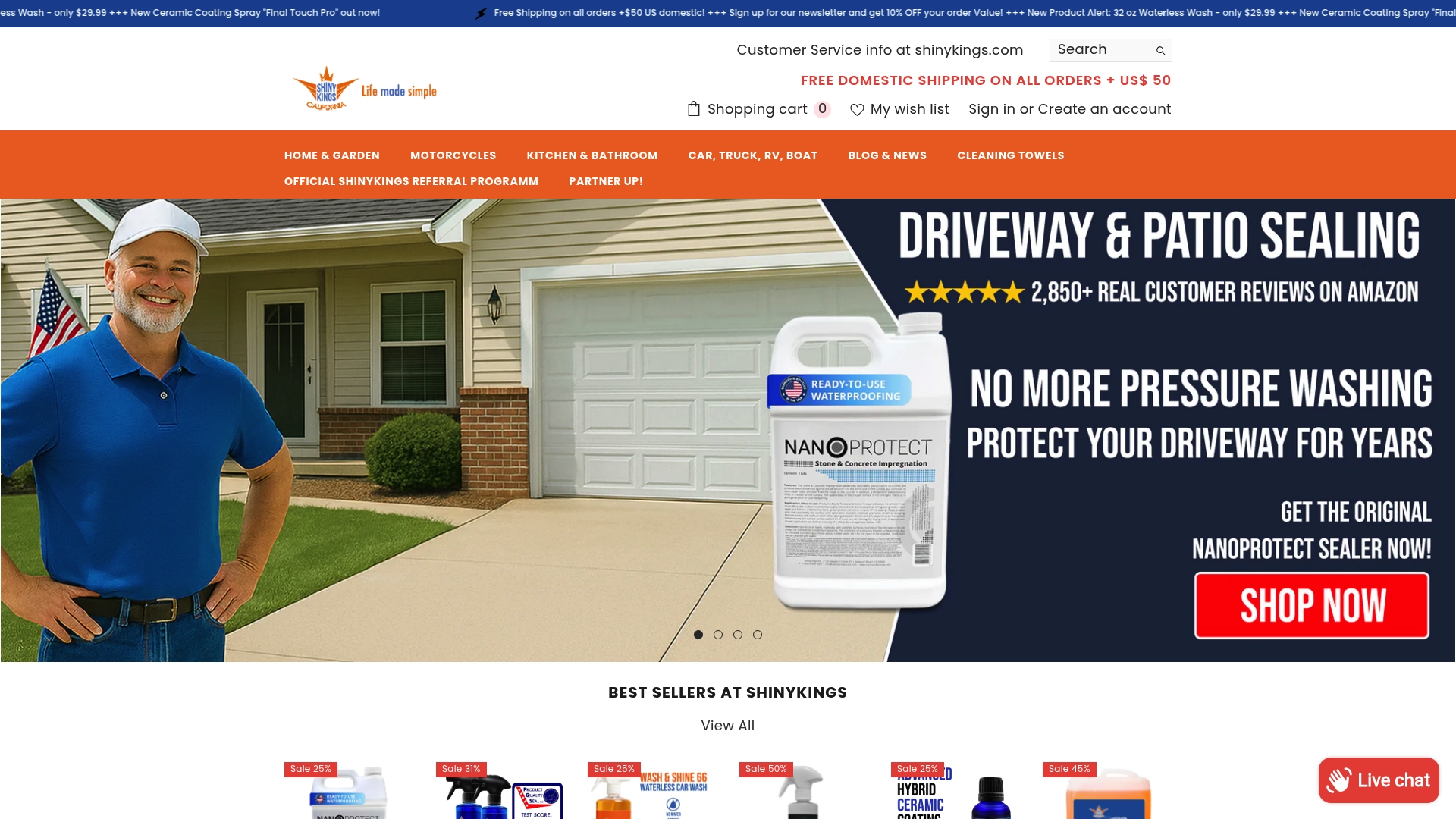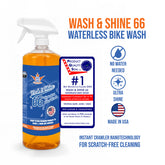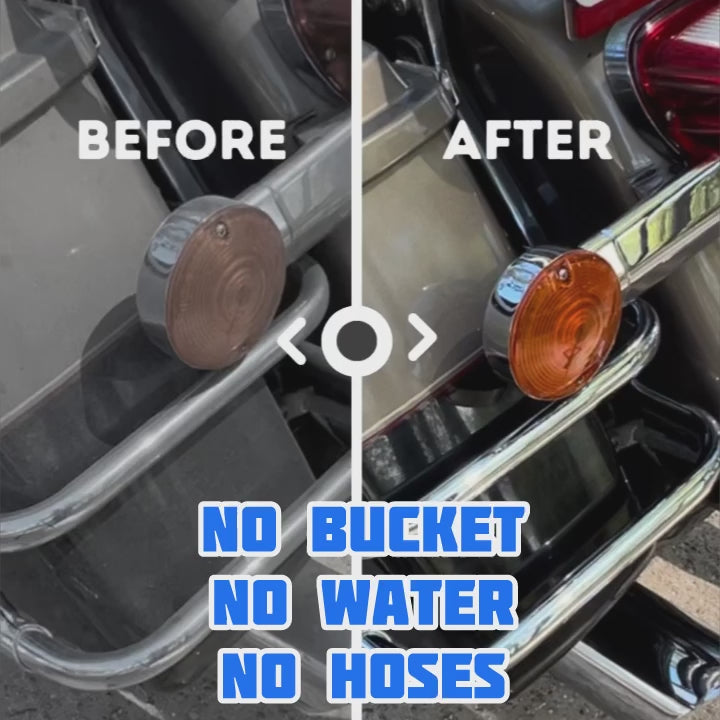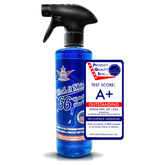What is a Polymer Coating? Understanding Its Benefits

Polymer coatings are changing the way we protect everyday objects, from kitchen appliances to cars. Most people do not realize that these coatings are engineered at a molecular level to create almost invisible shields against damage. What surprises many is that some polymer coatings now offer self-healing abilities and can extend the lifespan of surfaces by up to 50 percent, making surfaces tougher and maintenance easier than ever before.
Table of Contents
- Defining Polymer Coatings: What Are They?
- The Importance of Polymer Coatings in Everyday Life
- How Polymer Coatings Work: The Science Behind the Protection
- Applications of Polymer Coatings: Where You Can Find Them
- Benefits of Polymer Coatings for Homeowners and Vehicle Owners
Quick Summary
| Takeaway | Explanation |
|---|---|
| Polymer coatings enhance material durability. | These coatings protect surfaces from wear, corrosion, and environmental damage, significantly extending their lifespan. |
| Customizable properties tackle specific challenges. | Polymer coatings can be engineered for unique environmental needs, providing tailored protection for different applications. |
| Self-healing features improve resilience. | Innovative self-healing polymer coatings can automatically repair minor damages, maintaining surface integrity and performance. |
| Widely applicable across various industries. | From automotive to healthcare, polymer coatings are essential for preserving and enhancing product functionality in many sectors. |
| Minimize home and vehicle maintenance. | Polymer coatings reduce the need for ongoing maintenance by providing strong protective layers on household and vehicle surfaces. |
Defining Polymer Coatings: What Are They?
Polymer coatings represent advanced protective materials designed to enhance the durability, performance, and resistance of various surfaces. These specialized coating solutions utilize long-chain molecular structures that create robust protective layers across different materials and applications.
The Molecular Structure of Polymer Coatings
At their core, polymer coatings consist of complex molecular chains formed by repeating chemical units called monomers. These molecular structures enable unique characteristics that make them incredibly versatile protective solutions. Research from the Materials Science Institute indicates that polymer coatings can be engineered with specific properties to address diverse environmental challenges.
The fundamental properties of polymer coatings include:
- Superior adhesion to multiple surface types
- Exceptional resistance to chemical degradation
- Enhanced protection against environmental stressors
- Customizable molecular configurations
Practical Applications and Performance
Polymer coatings serve critical functions across multiple industries, transforming how we protect and preserve materials. From automotive surfaces to industrial equipment, these coatings provide comprehensive protection against corrosion, wear, and environmental damage.
Cross-linked polymer coatings, specifically, represent an advanced category of protective solutions. These coatings are applied as liquid substances and then cured into solid, densely interconnected films. Their performance depends on precise polymer and cross-linker chemistry, allowing engineers to design highly specialized protective layers tailored to specific environmental conditions and material requirements.
By understanding polymer coatings as more than simple surface treatments, we recognize them as sophisticated molecular technologies that extend the lifespan and performance of critical materials across numerous applications.
The Importance of Polymer Coatings in Everyday Life
Polymer coatings have become integral to modern life, offering innovative solutions that protect, enhance, and transform materials across numerous everyday applications. These advanced protective layers are not just industrial technologies but fundamental components that improve the performance and longevity of items we interact with daily.
Protecting Everyday Materials
Research from Polymer Science Experts reveals how polymer coatings impact our daily experiences. From kitchen appliances to personal electronics, these coatings provide critical protection against wear, corrosion, and environmental damage. The versatility of polymer coatings allows them to be applied across diverse surfaces, creating barriers that extend the functional life of materials.

Key areas where polymer coatings significantly impact daily life include:
- Kitchen and household equipment durability
- Electronic device protection
- Automotive surface preservation
- Clothing and textile performance enhancement
- Medical equipment and protective gear
Advanced Performance in Personal and Industrial Applications
Polymer coatings go beyond simple protection. They introduce advanced functional properties that transform ordinary materials into high-performance solutions. Self-healing polymer coatings, for instance, can automatically repair minor surface damages, increasing the resilience of materials in challenging environments.
These coatings are engineered to provide multiple benefits:
- Water and moisture resistance
- Chemical degradation prevention
- Enhanced aesthetic appearance
- Improved thermal and electrical insulation
- Reduced maintenance requirements
By integrating sophisticated molecular technologies into everyday materials, polymer coatings represent a quiet revolution in how we design, protect, and utilize products across personal, industrial, and technological domains.
How Polymer Coatings Work: The Science Behind the Protection
Polymer coatings function through intricate molecular interactions that create robust protective barriers across various material surfaces. These sophisticated protective layers operate through complex scientific principles that transform ordinary materials into highly resilient and functional systems.
Molecular Bonding and Surface Adhesion
The fundamental mechanism of polymer coatings involves precise molecular bonding between the coating and the underlying substrate. These molecular chains create strong intermolecular connections that establish a seamless protective interface. Advanced Research from Materials Science demonstrates how these molecular interactions enable unique protective properties such as water resistance and self-healing capabilities.
Key molecular interaction principles include:
- Chemical compatibility between coating and surface
- Formation of cross-linked molecular networks
- Ability to create uniform, continuous protective layers
- Adaptability to different substrate materials
- Precise control of molecular chain length and configuration
Protective Mechanisms and Performance Characteristics
Polymer coatings work through multiple protective mechanisms that shield surfaces from environmental stressors. These mechanisms involve creating barriers that prevent direct contact between the material and potentially damaging external elements.
The primary protective strategies encompass:
- Blocking moisture and chemical infiltration
- Distributing mechanical stress across molecular networks
- Preventing oxidation and corrosion processes
- Reducing friction and wear on surface materials
- Providing thermal and electrical insulation
By understanding these sophisticated molecular interactions, engineers can design polymer coatings that provide targeted protection for specific materials and environmental conditions. The science behind polymer coatings represents a remarkable convergence of chemistry, materials engineering, and advanced protective technologies.
Applications of Polymer Coatings: Where You Can Find Them
Polymer coatings have become ubiquitous across numerous industries, providing critical protective and functional enhancements to materials in ways that transform their performance and durability. These versatile molecular technologies extend far beyond industrial applications, touching nearly every aspect of modern life.
Industrial and Manufacturing Applications
Biomedical Research Insights reveal the extensive potential of polymer coatings in advanced technological domains. In manufacturing and industrial sectors, these coatings play crucial roles in protecting equipment, enhancing material performance, and preventing corrosion across multiple environments.
Key industrial applications include:
- Automotive manufacturing protective layers
- Aerospace component corrosion prevention
- Electronic circuit board protection
- Machinery and equipment surface treatment
- Metal infrastructure preservation
Biomedical and Healthcare Innovations
Polymer coatings have revolutionized medical technology by providing sophisticated surface modifications for medical devices, implants, and healthcare equipment. These specialized coatings can modify surface properties to facilitate cell growth, tissue repair, and controlled drug delivery mechanisms.
Significant biomedical polymer coating applications encompass:
- Medical implant surface modification
- Antimicrobial medical device treatments
- Controlled drug delivery systems
- Surgical instrument protective coatings
- Biocompatible material interfaces
By integrating advanced molecular engineering with practical applications, polymer coatings continue to push the boundaries of material science, offering innovative solutions across diverse fields from healthcare to heavy industrial manufacturing.
The following table provides an overview of how polymer coatings are used in a range of industries, highlighting typical applications and major advantages across each sector.
| Industry | Typical Applications | Major Advantages |
|---|---|---|
| Automotive | Manufacturing layers, exterior protection | Corrosion prevention, enhanced durability |
| Aerospace | Component coatings | Resistance to environmental extremes, reduced wear |
| Electronics | Circuit board protection | Electrical insulation, moisture barrier |
| Manufacturing | Machinery surfaces, metal preservation | Reduced maintenance, longevity, wear resistance |
| Biomedical | Implants, devices, surgical instruments | Biocompatibility, antimicrobial, controlled release |
Benefits of Polymer Coatings for Homeowners and Vehicle Owners
Polymer coatings offer transformative solutions that dramatically enhance the durability, appearance, and maintenance of residential and automotive surfaces. These advanced protective technologies provide homeowners and vehicle owners with innovative ways to preserve and protect their valuable investments.
Protection for Home Surfaces
Advanced Research from Materials Science demonstrates how polymer coatings can revolutionize home maintenance. By creating ultrathin, water-resistant protective layers, these coatings shield various household surfaces from environmental damage, reducing long-term maintenance costs and preserving aesthetic quality.
Key benefits for home surfaces include:
- Increased resistance to moisture and humidity
- Prevention of surface degradation
- Reduced cleaning and maintenance requirements
- Enhanced durability of interior and exterior materials
- Protection against UV radiation and environmental stressors
Vehicle Surface Preservation and Performance
For vehicle owners, polymer coatings represent a breakthrough in surface protection and aesthetic maintenance. These sophisticated molecular layers provide comprehensive defense against environmental challenges, maintaining the vehicle’s appearance and structural integrity.
Significant advantages for vehicle surfaces encompass:
- Self-healing capabilities for minor scratches
- Enhanced paint and body protection
- Improved resistance to chemical contaminants
- Simplified cleaning and maintenance
- Extended surface lifespan and aesthetic appeal
By integrating cutting-edge polymer coating technologies, homeowners and vehicle owners can significantly extend the life and performance of their most important assets, reducing maintenance costs and preserving surface quality with minimal ongoing intervention.
To help distinguish between the main types of benefits and applications, the table below summarizes the unique advantages polymer coatings bring to homeowners and vehicle owners.
| Area | Key Benefits |
|---|---|
| Home Surfaces | Resistance to moisture and humidity, prevention of degradation, reduced cleaning, enhanced durability, and UV protection |
| Vehicle Surfaces | Self-healing for minor scratches, paint/body protection, resistance to chemicals, easy cleaning, longer surface lifespan |

Ready to Experience the Next Level of Protection with Polymer Coatings?
After learning how polymer coatings deliver unmatched durability, self-healing power, and advanced protection for surfaces at home and in your vehicle, you might be wondering where to find solutions that live up to these promises. Tired of surfaces that degrade, lose their shine, or suffer from moisture, scratches, and chemical exposure? These are the real challenges the article addresses, and they impact your investment every day. Now there’s a way to safeguard your most valued surfaces using the very science you just read about.

Upgrade your world with professional-grade solutions trusted by industry experts. Whether you want a premium ceramic coating for your car, enhanced wood sealer for your outdoor space, or high-performance concrete sealer for your driveway, Shiny Kings has you covered. Visit our website now to discover the latest in polymer technology for your home, car, or business and see why taking action today will help you protect your investment for years to come.
Frequently Asked Questions
What are polymer coatings and how do they work?
Polymer coatings are protective materials made from long-chain molecular structures called polymers. They create robust layers on surfaces, enhancing resistance to environmental stressors, chemical degradation, and wear through strong molecular bonding and protective barriers.
What are the key benefits of using polymer coatings?
The benefits of polymer coatings include superior adhesion, exceptional chemical resistance, enhanced durability against wear and environmental damage, water and moisture resistance, and the ability to introduce advanced properties like self-healing capabilities and thermal insulation.
In what industries are polymer coatings commonly used?
Polymer coatings are widely used across various industries, including automotive, aerospace, electronics, biomedical, and manufacturing. They provide essential protection and performance enhancement for machinery, equipment, medical devices, and consumer products.
How do polymer coatings benefit homeowners and vehicle owners?
For homeowners, polymer coatings provide protection against moisture, degradations, and UV radiation, reducing maintenance costs. For vehicle owners, these coatings help maintain vehicle appearance, offer resistance to scratches and chemical contaminants, and extend the lifespan of paint and body surfaces.




